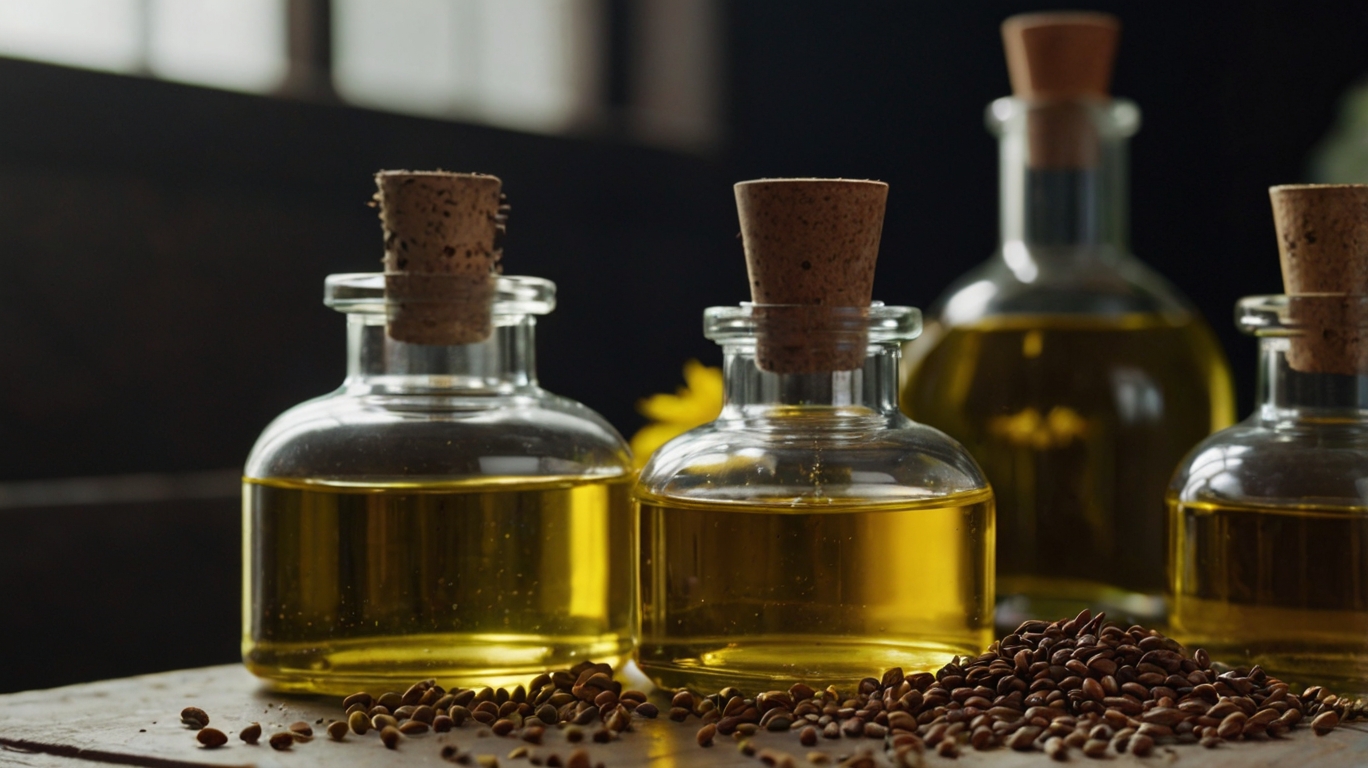In recent years, seed oils have become a hot topic in the world of health and nutrition. Some people praise them as healthy and heart-friendly, while others blame them for inflammation, weight gain, and even chronic illness. So what’s the truth? Are seed oils good for you — or something to avoid?
Let’s explore what seed oils are, how they’re made, and what science says about their effects on your health.
What Are Seed Oils?
Seed oils are vegetable oils that are extracted from the seeds of plants. Some of the most common seed oils include:
-
Soybean oil
-
Sunflower oil
-
Canola (rapeseed) oil
-
Corn oil
-
Safflower oil
-
Cottonseed oil
-
Grapeseed oil
These oils are widely used in processed foods, salad dressings, margarine, baked goods, and for frying in restaurants and fast food chains.
How Are Seed Oils Made?
Unlike olive oil or coconut oil, which are often cold-pressed and minimally processed, most seed oils are made through industrial methods. This typically includes:
-
High heat to extract the oil
-
Chemical solvents like hexane
-
Refining and bleaching
-
Deodorizing to remove smells and flavors
This heavy processing can affect the oil’s nutritional quality and stability.
What’s in Seed Oils?
Seed oils are high in polyunsaturated fats (PUFAs), especially omega-6 fatty acids. While omega-6 fats are essential for the body, too much — especially without enough omega-3s — can throw off your balance and may contribute to inflammation.
Seed oils also contain:
-
Small amounts of omega-3s (in some, like canola)
-
Vitamin E, an antioxidant
-
Possible residues from processing, like trans fats or chemical traces
The Concerns: Why Some Say They’re “Foe”
Some health experts argue that seed oils may do more harm than good, especially in large amounts. Here’s why:
-
High Omega-6 Levels
A diet too rich in omega-6 fats (and low in omega-3s like those from fish or flaxseed) can lead to an imbalance, possibly increasing the risk of chronic inflammation, which is linked to heart disease, obesity, and autoimmune conditions. -
Oxidation and Free Radicals
Polyunsaturated fats are unstable when exposed to heat and light. Cooking with seed oils — especially frying — can produce oxidized fats and harmful compounds like aldehydes, which may damage cells over time. -
Processed Food Overload
Seed oils are found in many ultra-processed foods. It’s often not the oil itself, but the overall diet full of fast food, chips, and fried snacks that contributes to poor health.
The Other Side: Why Some Say They’re “Friend”
Not everyone agrees that seed oils are harmful. In fact, many health organizations still recommend them. Here’s why:
-
Lower in Saturated Fat
Seed oils have less saturated fat than butter or lard. Replacing saturated fats with polyunsaturated fats has been shown to lower LDL (bad) cholesterol, which may reduce heart disease risk. -
Good Source of Vitamin E
Some seed oils, like sunflower oil, are high in vitamin E, an antioxidant that helps protect cells. -
Plant-Based and Affordable
Seed oils are widely available, plant-based, and budget-friendly, making them a practical option for many families around the world.
So… Should You Use Seed Oils?
Here’s the bottom line: moderation and balance are key.
Seed oils aren’t poison, but they also aren’t a superfood. The real issue is the overall quality of your diet.
If most of your meals come from whole, unprocessed foods like vegetables, fruits, healthy proteins, and whole grains — then a little oil in cooking probably won’t hurt you.
If your diet is heavy in fried foods, packaged snacks, and fast food — then cutting back on seed oils may be part of a smarter, healthier shift.
Tips for a Healthier Approach
-
Limit fried and processed foods high in seed oils.
-
Balance omega-6 with omega-3s: eat more fatty fish, walnuts, or flaxseed.
-
Use less oil overall — cook with minimal oil or try steaming, baking, or air-frying.
-
Choose less processed oils when possible: extra virgin olive oil, avocado oil, or cold-pressed options.
-
Store oils properly — keep them in a cool, dark place to avoid oxidation.
Final Thoughts
Seed oils aren’t all good or all bad. They’re one piece of a much bigger puzzle. The key is to stay informed, read labels, cook at home when you can, and eat a variety of real, whole foods.
Whether seed oils are a friend or foe depends on how often you use them, what type you choose, and what else is on your plate.





